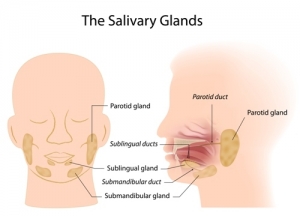Salivary Gland Disease

What are the salivary glands?
The salivary glands are divided into the major and minor salivary glands. The major salivary glands consist of the following:
- Parotid gland - located in front of the ears
- Submandibular gland - located underneath the jaw bone
- Sublingual gland - located underneath the tongue
In addition to these there are hundreds of minor salivary glands through the mouth, nose and throat.
What problems can occur in the salivary glands?
Diseases of the salivary glands are diverse. Some of the causes include:
- Infections - viral, bacterial
- Autoimmune conditions
- Tumours
Tumours of the salivary glands are rare however the presence of a lump in any salivary gland for more than a couple of weeks should be investigated. Tumours of the salivary glands can be either benign or malignant (cancerous). Thankfully most are benign. Nevertheless all of these need investigation and this is best done by an ENT surgeon with a particular interest in surgery of this type. I would recommend removal of almost all tumours of the salivary glands, even benign tumours. There are a number of reasons for this including the inaccuracy of needle tests, risk of benign tumours becoming a cancer and also the cosmetic concerns associated with lumps on the face or neck.
For more information about salivary gland surgery, click on the following links: